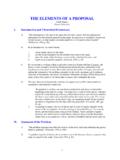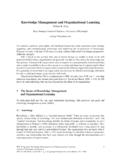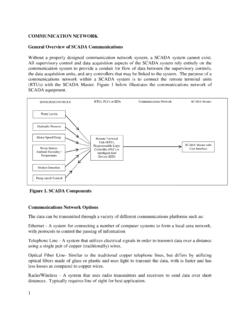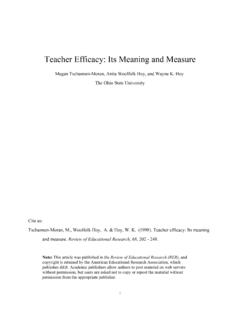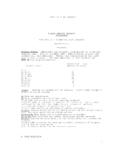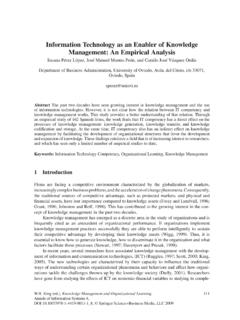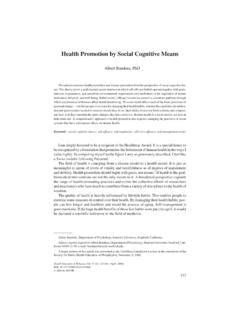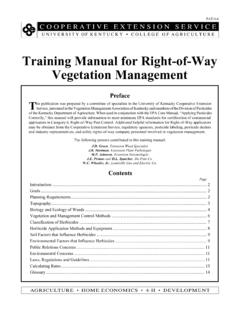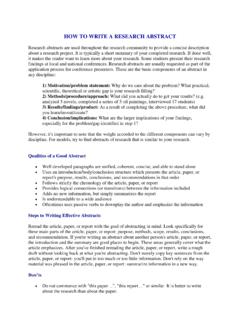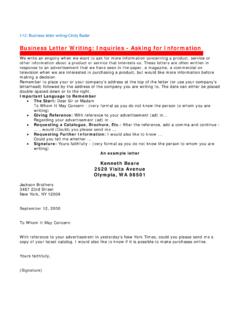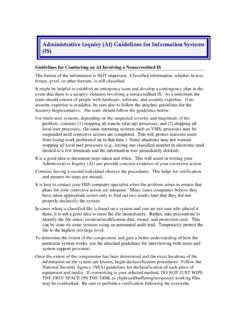Transcription of David Hume, An Enquiry concerning Human Understanding
1 David Hume, An Enquiry concerning Human Understanding An Overview of 4 Skeptical Doubts All the objects of Human reason can be divided into two kinds: (a) relations of ideas (b) matters of fact Question: What is the nature of the evidence which assures us of any real existence and matter of fact beyond the present testimony of the senses or the records of our senses? All such reasonings concerning matter of fact seem to be founded on the relation of cause and effect. Question: How do we arrive at knowledge concerning the relation of cause and effect? By reason or by experience? Knowledge of this relation is not, in any instance, attained by reasoning a priori ( unaided by experience), but arises entirely from experience when we find that any particular objects are constantly conjoined with each other.
2 We can never know by reason (with mathematical certitude) that a particular cause will produce a particular effect. After all, prior to experience, anything could conceivably happen to a particular object. The effect is totally different from the cause and consequently can never be discovered by it. Even after we have experience of the operations of cause and effect, our conclusions from that experience are not based on reason or on any process of the Understanding . Question ( Hume s Problem ): What allows us to extend our knowledge by experience to the future? That is, what (rational) grounds do we have (if any) for saying that such-and-such causal relation that we think we have observed will hold now or in the future?
3 Hume suggests that we appeal to the following claims: (1) I have found that such an object has always been attended with such an effect. (2) I foresee that other objects which are similar in appearance will be attended with similar effects. What allows or makes possible this inference? There is an underlying principle or supposition: the future will be conformable to the past (and similar powers will be conjoined with similar sensible qualities). In other words, the implicit argument seems to be the following: (1) In the past, the future has always resembled the past. (2) Therefore, in the future, the future will resemble the past.
4 But, according to Hume, this is a completely circular argument! Why? Because the observation (in the past) the future resembles the past is being used to support the conclusion the future resembles the past. Introduction to Philosophy: Knowledge and Reality 2 Dr. Brandon C. Look, University of Kentucky Therefore, there is no reason, there are no rational grounds, for believing that a given effect will follow a given cause. It is not a rational inference that leads us to have these beliefs in causality, but it is by nature we are constructed by nature in such a way that we necessarily have these beliefs.
5 That is, Hume gives us a psychological explanation. More in 5! In 5, Sceptical Solutions , Hume argues that it is custom or habit that provides a principle for our judgments about cause and effect. All inferences from experience, therefore, are effects of custom, not of reasoning. All belief of matter of fact or real existence is derived merely from some object present to the memory or senses and a customary conjunction between that and some other object. We, therefore, get a psychological explanation of the inductive inference. Custom is the great guide of life ( 6) 7 Of the Idea of Necessary Connection Here Hume shows that many terms force, power, necessary connection, etc.
6 Are used in a confused and ambiguous way. When we look at any instance of causation, we never really observe a necessary connection. We observe a, then we observe b; we never observe a s causing b. Can we arrive at the notion of power or necessary connection by observing ourselves? No. The power within us is similarly hidden and unknown. Can we observe this power purely within our mind? ( in the production of ideas) No. Can we understand power through the way God operates on bodies? No. This surpasses the limits of the Understanding . It is the feeling in the mind that leads from one perception to the second that is the necessary connection.
7 But, in the end, this should push us towards skepticism, for we have no clear idea of cause and effect. Thus, all our reasonings about matter and fact and real existence are deeply suspect because we cannot have certain knowledge via cause and effect. Psychological nature of Hume s account of causation. Note: this is part of what one calls, following Kemp Smith (1941), the subordination thesis : that reason is subordinate to feeling . Textual evidence: Reason is, and ought only to be the slave of the passions, and can never pretend to any other office than to serve and obey them. (Treatise )

